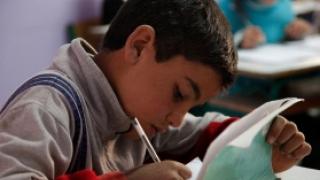
Speaking at an evidence session of Parliament's Joint Committee on Human Rights (JCHR) this week, NGO representatives claimed that migrant children are yet to feel the effects of child protection measures in the UK.
The session opened on a positive note, with Dragan Nastic, UNICEF UK’s Domestic Policy and Research Officer, pointing to examples of UK commitment to the UN Convention on the Rights of the Child (CRC). For example, the draft modern slavery bill incorporates the protection of children in servitude, while the 2013 reform of the Office of the Children’s Commissioner for England signalled the UK’s recognition that child rights should be a high priority.
However, Director of Children’s Rights Alliance for England Paola Uccellari stated that most progress in rights protection has been limited to areas under the jurisdiction of the Department of Education. This means that migrant children and their families, who fall primarily under the authority of the Home Office, struggle to access affordable childcare and quality schooling, and are unable to gain free access to emergency hospital care. According to Ms Uccellari, this proritisation of migration concerns over human rights results in “pockets of children who are left behind”.
The UK Government's failure to fully enshrine CRC provisions into domestic law has made it especially important for the UK to ratify the CRC optional protocol – an individual complaints mechanism that enables children to seek redress for alleged rights violations at the UN's Committee on the Rights of the Child. Addressing the JCHR, Kate Aubrey-Johnson, Youth Justice & Strategic Litigation Fellow at Just for Kids Law, noted that the UK's own provision of legal representation for minors has deteriorated due to cuts in legal aid. Ratification of the UN Convention on the Protection of the Rights of All Migrant Workers and Members of their Families (CMW) would further ensure that children were not discriminated against on account of their refugee status.
The evidence session was followed by the JCHR's announcement that an inquiry into the UK's compliance with the CRC would take place before the end of this Parliament to examine the extent to which protection of children's rights in the UK has improved or declined since the 2010 general election.
Click here to find out what else the UK can do to safeguard human rights at home.
Photo: A Syrian refugee. Copyright DFID/CC






